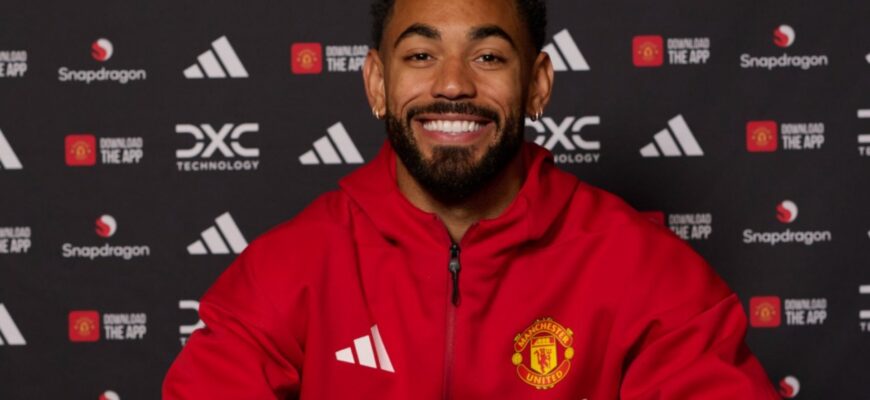Matheus Cunha`s arrival at Old Trafford was met with the familiar fanfare accompanying a significant transfer fee. The Brazilian forward, fresh off a prolific spell at Wolves, was widely expected to replicate his goal-scoring exploits for Manchester United. Yet, several Premier League appearances into his tenure, Cunha finds himself not only without a goal but also, by his own admission, grappling with a public perception that misinterprets his fundamental playing style.
The Striker`s Paradox: Numbers Versus Identity
Cunha`s recent past paints a clear picture of a forward who knows where the net is. His 15 league goals for Wolves last season, followed by 12 the season prior, are statistics typically associated with a traditional number nine. It is, therefore, an understandable assumption that Manchester United acquired a primary goal-scorer. However, Cunha himself contends that this classification is a “stereotype,” asserting that his true footballing identity lies elsewhere.
One might observe a touch of irony in a player scoring a combined 27 league goals over two seasons, only to then distance himself from the conventional striker`s label. Perhaps those goals were merely fortunate deflections, or perhaps the ball, sensing Cunha`s presence in the final third, simply decided to grant his team a favorable outcome out of sheer politeness. More likely, it points to a deeper truth about modern football and the fluidity of player roles.
From Midfield Maestro to Tactical Chameleon
Cunha`s formative years were spent in the heart of midfield, a position demanding distribution, tactical awareness, and control. It was only upon entering professional football, amidst the prevalence of the 4-3-3 formation, that his role began to evolve. “They eliminated the midfielder position,” Cunha remarked to Globo, highlighting a common sentiment among players forced to adapt to contemporary tactical frameworks.
This adaptation has transformed him into a highly versatile player, capable of operating as a centre-forward, a winger, or even a deeper “eight.” While such adaptability is often lauded as a valuable asset by coaches, for Cunha, it has seemingly contributed to a public understanding deficit. Is he a central striker with a penchant for dropping deep, or a midfield orchestrator pushed into advanced positions? The answer, it appears, is dynamic and context-dependent, which can be perplexing for spectators seeking a clear-cut role definition.
“I think it`s part of having that weight, which is a privilege. It`s a weight that came after the Tokyo Olympics [for Brazil in 2021]. And if it means having that weight and becoming a champion, I think it`s worth putting up with a little bit of confusion about where [I] play.”
The Weight of the Shirt and Personal Fulfillment
Despite the current goal drought and the swirling discussions about his position, Cunha expresses profound personal satisfaction. Donning the revered red shirt of Manchester United and representing the Brazilian national team, with whom he secured an Olympic Gold medal in 2021, are privileges he deeply cherishes. For Cunha, this phase of his career transcends mere statistics; it represents the culmination of a lifelong ambition, a “spectacular personal moment” that he endeavors to enjoy amidst the pressures.
The “weight” of expectation, particularly at a club of Manchester United`s stature, is immense. New signings are immediately scrutinized for their output. Cunha`s acknowledgment of this pressure, and his commitment to “deliver results as quickly as possible,” underscores the demanding environment in which he operates. This intensity, he suggests, is paradoxically accelerating his adaptation to a new league and a new team.
Navigating the Future: Clarity and Contribution
As Manchester United navigates a challenging league campaign, with a formidable fixture against Liverpool on the horizon, Cunha`s role will be under even greater scrutiny. His unique skillset, a blend of midfield industry and forward instinct, could prove invaluable if optimally deployed. The challenge for the coaching staff will be to harness his versatility effectively, not as a source of confusion, but as a tactical advantage.
Matheus Cunha’s narrative at Manchester United is more than just a typical transfer story. It is a compelling case study in modern football`s evolving player roles, the burden of expectation, and the intricate dance between a player`s self-perception and public classification. His journey at Old Trafford will undoubtedly be a fascinating exploration of how a truly versatile player can define his impact in a team desperately seeking consistency and a clear identity.








